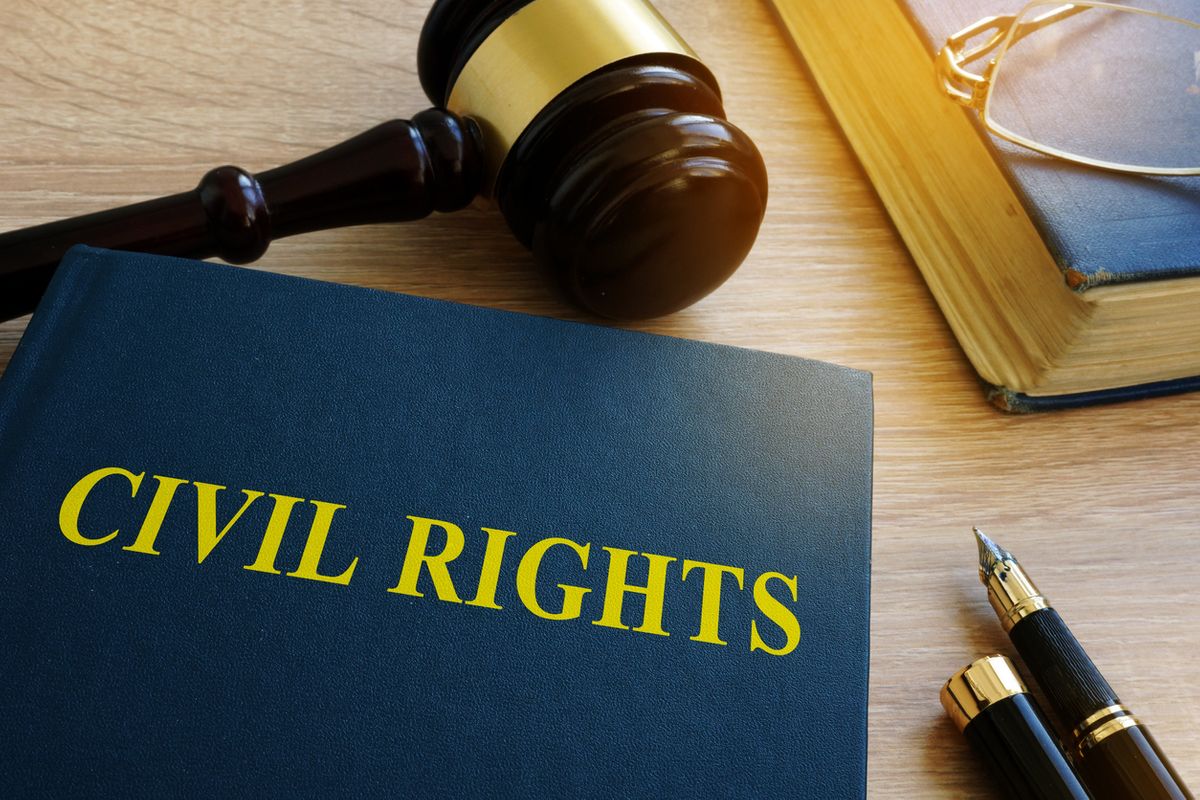The United States Constitution is revered as one of the most elegant documents ever produced. It is the guiding light by which the United States is governed. If something is in violation of the Constitution it is deemed illegal and prohibited. However, the Constitution is not merely a set of restrictions on one's life, quite the opposite. The Constitution is also where we derive our civil rights and liberties from.
What Are Civil Rights?
The Department of Health and Human Services, a branch of the Federal government, provides the following definition of civil rights:
Civil rights are personal rights guaranteed and protected by the U.S. Constitution and federal laws enacted by Congress, such as the Civil Rights Act of 1964 and the Americans with Disabilities Act of 1990. Civil rights include protection from unlawful discrimination.
These rights are essentially all of your freedoms and liberties as provided by the Constitution and the various laws passed in accordance with the Constitution. Protection of those rights is of utmost importance to all persons. We all want to live in a free and fair society. And it is only possible when all people in that society are treated equally. Sadly, the country has not always lived up to that ideal. However, it is something that we should continue to strive for in all that we do as a nation.
Examples of Civil Rights
There are a variety of different civil rights that one gets to enjoy as a citizen of the United States. It is a good idea to become familiar with what some of these rights are. It is for you to know what you most need to protect and guard.
Stopped by Police
No one ever wants to have a negative interaction with law enforcement. However, if you are confronted by police, you should understand that you have civil rights that are protected by the Constitution in these situations.
When pulled over by police, both the driver and any passengers have the right to remain silent. If you are the passenger in this situation, you may ask the police if you are free to leave. If they say yes, then you may silently leave the situation.
Arrested by Police
If you are arrested by the police, you have the right to remain silent, and you should exercise it. The best thing to do is request an attorney immediately. If you are unable to afford the services of an attorney, a public defender will be provided to you free of charge. You can refuse to answer any questions until your attorney arrives.
You also have the right to make a local phone call. If you use that call to speak with an attorney, law enforcement is not permitted to listen to that call. They can (and frequently do) listen to calls made to other individuals. Keep that in mind when you place your phone call.
Protest Rights
One of the fundamental rights protected by the Constitution is the right to protest. Any protest is best served by exercising their free speech rights in public areas such as sidewalks, parks, and public streets. That is where protest rights are the strongest. Keep in mind that private property owners may restrict the kind of speech permitted within their property.
Counter-protesters are permitted to exercise their free speech rights as well. Police officers are meant to treat both sides of a protest equally. Law enforcement can keep these groups apart, but they should leave them within sight and sound of each other.
Religion and National Origin Rights in Employment
It is illegal for an employer to deny you a job opportunity based on your religion and national origin. The Constitution and the Federal Equal Employment Opportunity Act guarantee and protect you from employment discrimination based on these characteristics alone.
Why Do Civil Rights Matter?
Only a government can grant civil rights, and they are not automatically guaranteed. They are important because they ensure that everyone is provided with the same opportunities in life as all others. They help level the playing field and make sure that all people are given the chance to share in the rewards that this country has to offer.
The struggle for civil rights is an ongoing struggle that continues every day. Unfortunately, there are many instances in which people are not granted the civil rights that they have been guaranteed under the United States Constitution. When that occurs, it is important that we all stand up for what is right and protect the rights granted to us. This is why we have a legal system that can step in when someone's rights are being denied.
How can Attorneys Protect Your Civil Rights?
Attorneys are the frontline in helping you protect your civil rights. They work with you hand-in-hand to ensure that justice is served in the event that your civil rights are violated. Georgetown Law explains the work that civil rights attorneys as follows:
Civil rights lawyers share a commitment to creating a just society through legal means. To this end, they work on a variety of issues from lobbying for civil rights recognition in the judiciary to litigation-based civil rights advocacy.
Most attorneys, such as those on our team, get into the field of civil rights law because they have a passion for protecting the Constitution and creating a level of fair play for all. It is work that is often thankless, but it is critical work that must be done. When any individual's rights are violated, it puts us all at risk, and that is too high of a price to pay. It is critically necessary to work with those struggling as a result of a civil rights violation to find the justice that they need and that they deserve. Our team does that, and we would be happy to hear from you about how we can help protect your civil liberties.
If you have questions or concerns about protecting your civil rights, please contact us to receive a free consultation with one of the attorneys on our team. He or she can go over all of the specifics of your case and determine the next steps to take with you.

